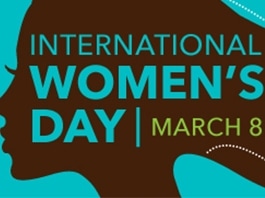Three brave and influential female journalists from Russia, Colombia and Azerbaijan who have been intimidated and attacked with impunity are being recognised and celebrated on 8 March, International Women's Day.
(CJFE/IFEX) – On a day that commemorates the social, political, and economic achievements of women, it is important to also recognize the ongoing challenges women continue to face. In countries around the world, they are still targeted directly for their work and justice is often skirted in cases where women have been harassed or attacked.
To honour Canada’s official 2013 International Women’s Day theme of ending violence against women, we are profiling three brave and influential female journalists who have been intimidated and attacked with impunity. These reporters – Anna Politkovskaya, Jineth Bedoya Lima, and Khadija Ismayilova – are just three of the countless female journalists who have bravely continued their work in a culture of impunity.
Anna Politkovskaya
Like so many Russian journalists who spoke out about social injustices and government corruption, Anna Politkovskaya’s work made her a target. The newspaper reporter, who was a vocal critic of Russian president Vladimir Putin, filed unflinching reports from Chechnya that detailed the executions, torture, and other atrocities executed by Russian troops during the first and second Chechen wars.
During her career, Politkovskaya was threatened, poisoned, and even tortured. Someone followed her as she shopped for groceries on October 7, 2006, the day she paid the ultimate price for her reporting. She was shot four times at point-blank range as she carried her groceries home in her Moscow apartment building.
The lead investigator into her case believes Politkovskaya’s murder was a warning to all anti-government journalists.
Since 1992, 30 Russian journalists have been killed with impunity, according to the Committee to Protect Journalists (CPJ).
In a chilling essay, Politkovskaya recounted the hardships she’d faced while trying to do her work, from comparatively small obstacles like being blocked from Kremlin press conferences, to repeated death threats and a nearly fatal poisoning in 2004. She knew her life was at risk.
Fearing for her safety, her family and friends wanted her to stop reporting. Even the Chechen people she wrote about recognized the danger of her coverage.
In a 2011 documentary by Marina Goldovskaya on the life and career of Politkovskaya, colleagues in the Russian media went so far as to dismiss her emotional accounts of the Chechen plight as “shockingly unprofessional,” accusing her of being unable to remain detached due to her “feminine nature.”
But despite the dangers, Politkovskaya believed her reporting had to be shared, and continued her honest and critical coverage of Russian affairs. “How could I live with myself if I didn’t write the truth?” she asked.
Unlike so many other cases of journalists killed, there may be some hope for justice in the Politkovskaya murder case. After one unsuccessful attempt to charge three suspects, a recent retrial sentenced a former policeman to 11 years for his role in the killing. More suspects and collaborators remain at large, but for a country where impunity runs rampant, it’s a start.
Jineth Bedoya Lima
As the deputy justice editor for El Tiempo newspaper in Colombia, Jineth Bedoya Lima covers sensitive topics including drug trafficking, organized crime, and violence against women. It’s a dangerous beat for anyone, but the risks of controversial reporting in Colombia came into sharp focus for Lima in 2000.
Lima was working on a story about weapon smuggling at a maximum-security prison in Bogota. The story involved government officials and right-wing paramilitaries from the United Self-Defense Forces of Colombia (AUC). Knowing it was a potentially dangerous situation, she brought an editor along for protection, but it wasn’t enough; Lima was separated from her colleague, drugged, and kidnapped.
Hours later, Lima was discovered by a taxi driver. She had been stripped naked with her hands bound together and abandoned at the side of the road near a garbage dump. Her attackers, suspected to be three paramilitaries, had tortured and raped her for hours.
“We are sending a message to the press in Colombia,” one of Lima’s attackers told her during the assault.
Two weeks later, she was back at work.
Lima told the Atlantic that she was always fearful of reprisals for her reporting, but the attack made her think about the “specific vulnerability of what can happen to my body because I’m a woman.”
If Lima is frightened, it doesn’t show. Though she continues to receive threats, she also continues to report. Now she has 24-hour security provided by her employers, and a bullet-proof car courtesy of the Colombian government.
And after more than a decade of inaction, the case against her attackers is underway.
Khadija Ismayilova
As Khadija Ismayilova has said herself, she didn’t set out to become a reporter. While working as a translator for a newspaper in Baku, the capital of Azerbaijan, Ismayilova was sent to cover a press conference. Editors liked her story so much that she was increasingly assigned to reporting assignments.
Ismayilova is now one of Azerbaijan’s leading investigative journalists. She hosts a weekly radio show on Radio Free Europe where she is a tireless critic of the government, including President Ilham Aliyev and his questionable relationships with big oil companies in the former soviet republic.
Reporting on corruption in Azerbaijan is a dangerous job for a journalist. But it is because of, not in spite of, this danger that Ismayilova chose to report on the topic. When opposition journalist Elmar Huseynov was murdered in 2005, Ismayilova felt a sense of guilt for his death. “It’s my fault as well, because he was doing it alone,” she said.
In an effort to bolster Azerbaijan’s free press, Ismayilova now trains other journalists in investigative reporting.
Like numerous other outspoken Azerbaijani journalists, Ismayilova has been targeted for her work. However, her particular case also included sexual harassment. In March 2012, she received a letter stating “Whore, behave. Or you will be defamed.” The letter included explicit photographs taken of Ismayilova. They were also sent to family members and other media outlets. A week later a sex tape of Ismayilova and her boyfriend surfaced online, filmed from inside her own home.
Rather than back down from the threats, Ismayilova publically acknowledged them and set to work investigating their origins. She has traced the letter back to a Moscow post office and found a phone company employee who admitted to planting hidden cameras around her apartment. Ismayilova has passed the information she’s gathered to the prosecutor’s office, but so far nothing has been done.
Ismayilova continues to stand up to intimidation, remaining committed to her reporting in the face of impunity.
Courageous journalists around the world face ongoing challenges in trying to do their work. Threats, attacks, and other intimidation tactics are by no means limited to female reporters. But on International Women’s Day, let’s take a few moments to recognize and honour the brave women who continue to stand up for their rights, beliefs, and work in the public interest.



